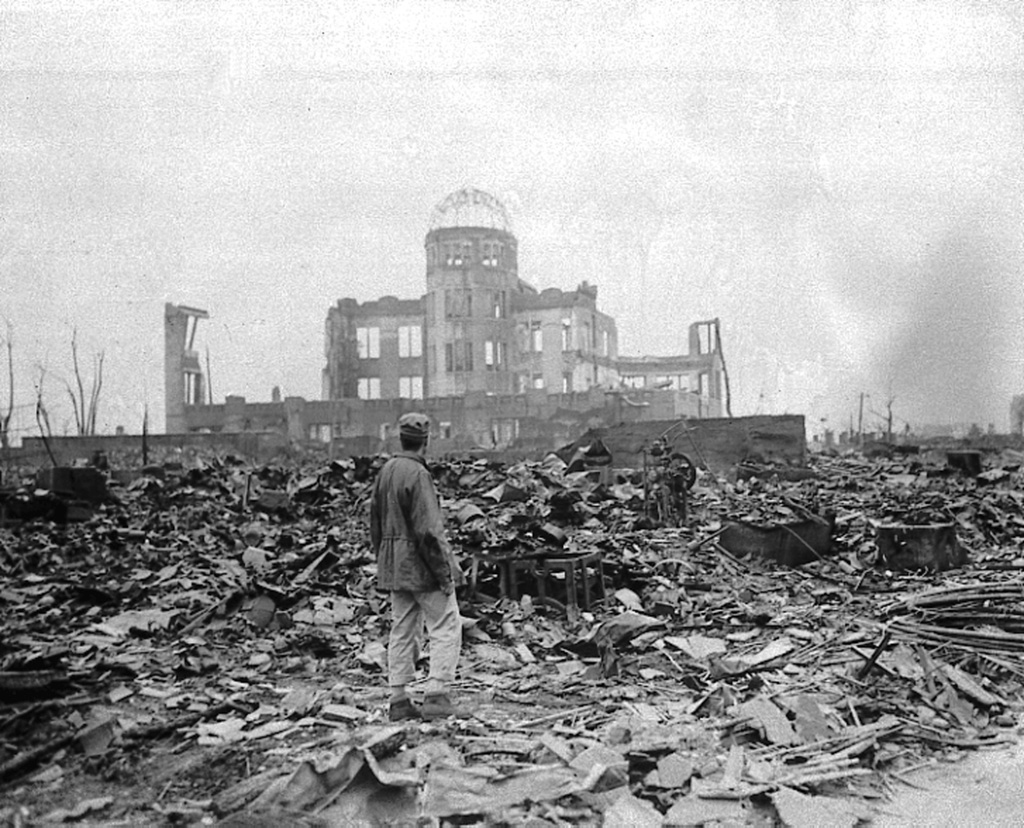
Challenge to keep nuclear “genie in the bottle”

Nuclear weapons remain a serious threat even if none have been deployed since bombs were dropped on Hiroshima and Nagasaki 65 years ago.
Swiss security expert Kurt R. Spillmann tells swissinfo.ch that, in his opinion, nuclear state Pakistan represents a greater threat than Iran with its ambitions to build the bomb.
Spillmann says the Treaty on the Non-Proliferation of Nuclear Weapons (NPT), has proven to be a “useful instrument”.
But whichever accord is in force, whether the treaty or a proposed nuclear weapons convention, disarmament efforts can only work if the nuclear powers are prepared to give supervisory bodies wide-ranging powers. This is where the security expert sees major deficits.
Spillmann is the former director of the Centre of Security Studies and Conflict Research at the Federal Institute of Technology in Zurich (ETHZ).
swissinfo.ch: 65 years after Hiroshima and Nagasaki, the world is confronted with other problems including climate change, international terrorism, poverty, migration flows, clashes of cultures and economic crises. Where does the disarmament issue fit in?
Kurt R. Spillmann: After the end of the Cold War, it dropped way down the list. Exceptions are the cases involving North Korea, Iran and Israel. In reality, the subject is still important.
swissinfo.ch: Is it partly thanks to the NPT that nuclear weapons have not been deployed in anger since the bombing of the two Japanese cities?
K.R.S.: I don’t agree entirely. The NPT is a useful instrument to end the aspirations of various developing nations to become nuclear states. But the examples of India, Pakistan, South Africa, Brazil and Israel show that despite the treaty states can get access to or even own nuclear weapons.
However I still think it’s a useful instrument. The nuclear powers can use it to apply pressure to prevent proliferation.
swissinfo.ch: Will the Nuclear Weapons Convention, with its concrete demands, pave the way to a world free of nuclear weapons?
K.R.S.: This instrument does not yet exist. Even if it’s a nice idea, it’s just wishful thinking that all states will sign a global convention and give up nuclear weapons.
The legal efficacy of such a document would always depend on the willingness of the signatories to empower supervisory bodies to enforce [the articles of] the accord.
As the United Nations watchdog, the International Atomic Energy Agency (IAEA) is only effective when it has the backing of the members of the UN Security Council.
It’s important to have these instruments. But one shouldn’t hope for a nuclear-weapons-free world. Nuclear fission, once discovered, cannot be revoked. It’s extremely difficult to keep the genie in the bottle.
swissinfo.ch: Switzerland has launched an initiative for a convention that would ostracise nuclear bombs, as is already the case with chemical and biological weapons. What are the chances for this initiative’s success?
K.R.S.: Nil at the moment. The initiative is quite similar to the general disarmament convention. And the same holds true here: such a treaty is only as good as the supervisory body in charge of enforcing it. We’ve unfortunately still got a long way to go before such an institution is given sweeping powers.
swissinfo.ch: What’s lacking therefore is the willingness of the nuclear powers?
K.R.S.: That’s right. It’s like the UN. It’s a great way for the peoples of the world to be organised. It does away with violent conflicts because negotiations can take their place.
That’s the way it is with nuclear armament. But you first must have the willingness and consensus of the signatories to implement the control mechanisms.
The readiness to cooperate internationally and to implement such rules fluctuates, as history has shown. George W. Bush and former United States presidents disdained the UN.
swissinfo.ch: Regarding Iran: what would it mean for the Middle East if it possessed nuclear weapons?
K.R.S.: It would do a lot for the country’s prestige and increase its power since it’s a state with a very old culture and one that is well organised. But based on existing nuclear weapons and treaties, I’m convinced that Iran would not deploy them.
But there is the danger that fundamentalist Islamic organisations could lay their hands on nuclear weapons. Al Qaida aspires to getting them. In this regard, Pakistan represents a much greater danger than Iran.
Renat Künzi, swissinfo.ch (translated from German by Dale Bechtel)
The Treaty on the Non-Proliferation of Nuclear Weapons (NPT) was concluded in 1968 and entered into force on March 5, 1970.
Its first paragraph explained why the NPT was negotiated and needed: “Considering the devastation that would be visited upon all mankind by a nuclear war and the consequent need to make every effort to avert the danger of such a war and to take measures to safeguard the security of peoples…”.
All countries except India, Israel, and Pakistan have joined the treaty, although in 2003 North Korea withdrew in order to develop nuclear weapons.
Switzerland is a party to the NPT as a non-nuclear weapons state and regularly hosts international summits on disarmament in Geneva. It has five nuclear power reactors generating about 40 per cent of the country’s electricity.

In compliance with the JTI standards
More: SWI swissinfo.ch certified by the Journalism Trust Initiative




























You can find an overview of ongoing debates with our journalists here . Please join us!
If you want to start a conversation about a topic raised in this article or want to report factual errors, email us at english@swissinfo.ch.